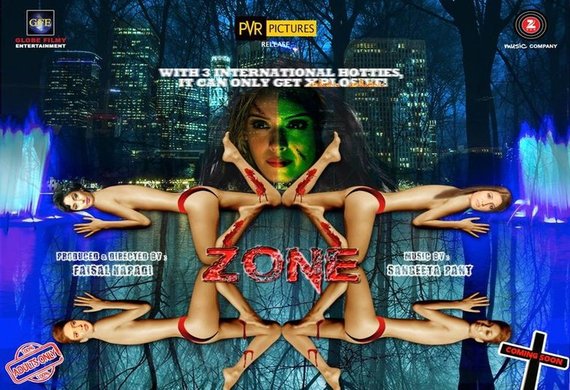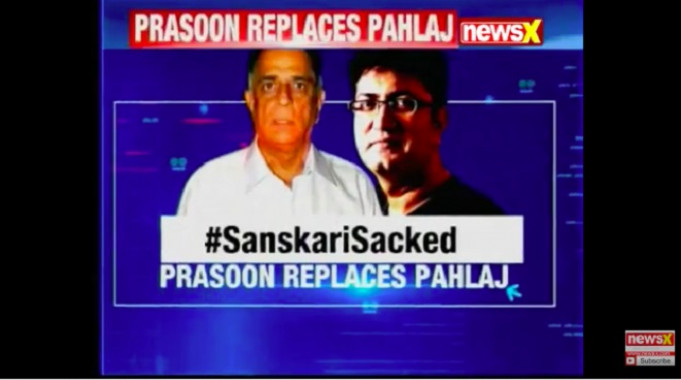Good sense returns to the CBFC
The reconstituted Central Board of Film Certification, under the stewardship of film lyricist and current chief Prasoon Joshi seems set to reverse the ‘excesses’ of its predecessor. Consider the following:
Dissent is all right: The Bengali filmChaya O Chobi by Kaushik Ganguly, despite being critical of demonetization, has been cleared by the CBFC without any cuts. Unlike earlier, when filmmakers complained about creative freedom being muzzled, the Board is consciously taking a more liberal approach now. It is determined to be seen as a body that cannot be dictated to by the government in power. This should put to rest a lot of speculation revolving around the saffronisation of creative and artistic freedom of expression - for now.
- Clearing films without cuts: Take the instance of IT, a Hollywood horror flick by Andres Muschetti, which saw the Examining Committee recommend 12 cuts. These have been upturned by Joshi and the film has been cleared with an ‘A’ certificate, while retaining all the cuss words. Says Kannada filmmaker T. S. Nagabharana, a CBFC member who has been a part of the team of Joshi’s predecessor, Pahlaj Nihalani, and continues to be a member under Joshi as well: “There has been no formal directive as yet to clear films without cuts but the film must have been cleared because he felt that the recommendations were irrelevant.”
The decision seems more in sync with the Shyam Benegal Committee recommendations which proposed amendments such as introducing a new category called ‘adult with caution’ and sub-dividing existing categories into UA 12+ and UA 15+ to make the content accessible to appropriate audiences. It is another matter that the Benegal Committee recommendations have yet to be directed to the CBFC members! “We have not yet received it from the government. A lot of discussion will have to go into the matter before it can be implemented,” said Nagabharana.
New rules: Contrary to several news reports, recommendations made by the members will still be communicated to the producer. The difference in the earlier and current scenario is that it will now be done online. Only the process of informal negotiations, which used to happen verbally and immediately after the screening of a film, has been done away with.
Members will still be recommending changes and giving the producer an opportunity to respond within a time window. “See, a film producer has a lot to do. So usually, the film used to be taken to the committee for screening by production staff - maybe a production manager or someone like him and cuts/recommendations were conveyed verbally. That is where negotiations used to happen. But now all recommendations will be put online and the onus of accepting or rejecting them lies with the producer/s. If he wants a different certification other than what has been given then he will have to come back with the film with those changes. Making those changes and how he makes those changes is his choice. If not, he will accept the certification. At no point has the process been bypassed. We are here only to certify. A cut itself is an act of censoring, so we do not want to do that,” said Nagabharana.
Still, it isn’t as though anything and everything will get the nod. The Board on Thursday decided to ban X Zone, produced and directed by a relatively unknown Faisal Kapadi – the first film to face the axe since Joshi took over. It contains graphic scenes of sex and nudity including a frontal nudity shot of Hrishitaa Bhatt, otherwise known for her roles in Asoka, Ab Tak Chappan and Haasil. Says Vivek Sinha, former member CBFC, Regional Office, New Delhi: “See, ‘the filmmakers often say, ‘If an ‘A’ certificate has been granted why do you want cuts?’ The ‘A’ certificate does not mean that a filmmaker is at liberty to show what he/she wants. If the film’s content does not fall within the parameters of the Cinematograph Act, cuts will be recommended. There are certain things like ‘frontal nudity’, ‘disrespect to the national flag’, ‘violence against women’ and may more such guidelines under the Act which have to be borne in mind."

X Zone promotion picture
“At the same time,” Sinha continues, “I firmly maintain we are not here for moral policing. As audience – it is up to you to decide whether the film is working or not on social, moral parameters and accordingly accept or reject it. As a filmmaker and a former member of CBFC Advisory panel I understand the pain from both sides. There is lot of money, effort and time involved. Still I personally have recommended banning a film on account of vulgarity and sexual innuendoes. It was banned during my tenure and I do not know if they took legal recourse but I was very clear the film could not be passed – not even with cuts. It was commodifying women in the most crass fashion and so it was violating the Act.”
So, it appears that Joshi is walking the talk with X Zone. In an interview with the Business Standard, Joshi just after taking charge had said, “We need to ensure that those not in an empowered state or situation to decide, are also taken note of. Say for example children. It's about the power of informed choice. And for that to come into complete play, it's important that there are no gaps in audience awareness and information about the kind of content being presented. We need to work towards any goal with awareness and responsibility from all ends.”
Plans are also afoot to rectify a lot of things that went haywire in the previous regime. A lot of unilateral decisions which were taken need to be repealed. For instance, under Pahlaj Nihalani, a lot of films including regional films and their dubbed versions had to be certified in Mumbai. “That decision made no sense,” says Nagabharana. “It’s the job of a regional office (there are nine across India) and the team there to be certifying a film from that region. But when this unilateral decision was enforced, even a dubbed version had to be taken to Mumbai.
“Then if recommendations were made, the filmmakers had to go back to their studios, make changes and return to Mumbai to show the new version to the Revising Committee. All this should be done in regional centres, not Mumbai. Filmmakers spent so much time and money going up and down. The CBFC has to be producer friendly.”
Foolhardy decisions such as this one and a lot more will come under scrutiny once the first Board Meeting of the new team takes place around the middle of this month. Collective rather than individual will be the focus from here on.
While these are laudable steps being taken by the CBFC, the larger issue involves screening of films in theatres (especially in B tier cities and smaller towns) and whether they are playing the same version that has been cleared by the Board. Cases have been known where theatres have interpolated porn while screening a film and faced legal action. But the process is simpler now. Given satellite and distribution agencies like Qube Cinema and UFO it is easier to monitor film screenings anywhere. “No exhibitor can screen a film without a censor certificate. They will be monitored,” says Nagabharana.
For these decisions to be successfully implemented there will have to be checks and balances in place. While Joshi and his team have taken a step forward in the right direction there is still a long way to go – whether it is a clear thinking CBFC, a responsible film industry or a mature audience.
Manjulaa is managing director of the Woodpecker International film festival and was formerly a senior editor with The Times of India.
